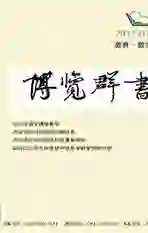例说“倒装结构”用法
2017-04-18姚媛
姚媛
高考英语单项填空题和阅读中都会出现倒装结构,现对此结构进行归纳,供同学们复习参考。
定义:英语中的基本语序和汉语一样,即主语在前,谓语在后。有时为了语法结构的需要或是为了修辞的需要,将谓语的全部或一部分放在主语之前,这种语序叫倒装。
分类:倒装结构分为全部倒装和部分倒装两大类。前者指整个谓语部分放在主语之前,后者只将谓语的一部分(助动词或情态动词)放在主语之前。
一、全部倒装
1.表示地点、方向或时间的副词放在句首,并且主语是名词时。常见的副词有:here, there, up, down, out, in, away, then, now,nearby等。
Here comes the bus.
Off went the man. 那个人走了。
Away flew the bird. 那只鸟飞走了。
Now comes my turn. 现在轮到我了。
From the window came sound of music. 音乐声从窗户传来。
In came my father, safe and sound. 我父亲安然无恙的走了进来。
注意:主语是代词时不倒装。
There he comes.
2.表示地点的介词短语放在句首,主语为名词时。常见的动词有be, stand, sit, lie等。
On the ground lay an old sick goat. 地上躺着一只又老又病的山羊。
In the middle of the lake lie two islands. 湖中央坐落着两个岛屿。
On the floor are piles of old books and newspapers.
地板上放着一堆堆的旧书报。
Under that tree sits a beautiful girl, who is dressed in white.
那颗树下坐着个穿白色衣服的漂亮女孩。
3.There be结构。除be动词之外,常见的动词有:live, stand, lie, exist (存在), used to 等。
There are three people in my family. 我家有三口人。
There lived an old man long long ago. 很久以前哪儿住着一位老人。
There exist different opinions on this question. 就此问题存在不同观点。
注意:(1)此结构中be 动词不能用实意动词have/has (有),但可以有助动词have/has构成的完成时。
There have been a foreign teacher since 2009 in our school.
我们学校自从2009年就有一个外教。
(2)主谓一致适用就近原则。
There is a pen, two books and many pencils on the desk.
桌上有一支钢笔、两本书和好些铅笔。
4.在系表结构中,有时为了强调表语将其置于句首,引起全部倒装。
即:(形容词、ed分词、ing分词、介词短语)+be+主语
Hanging on the wall is a nice picture. 墙上挂着一副好画。
Present at the meeting was Professor Li.李教授出席了会议。
Tied to the tree is a poor monkey. 一只可怜的猴子被系在了树上。
5.直接引语中间或后边表示“某人说” 等意思时,常见动词有say, ask, answer, reply等。
“Sit down, please.” said the teacher. “请坐下,”老师说。
"Where are you from?” asked Linda. “你来自哪里?”琳达问。
二、部分倒装
1.疑问句中,一般须部分倒装。
Are you going with your friends?
What do you think about the movie? 你认为这场电影怎么样?
注意:当对句子的主语提问时,一般不用倒装语序。
What happened last night? 昨天晚上发生了什么事?
2.当含有否定或半否定意义的副词或短语放在句首时,这类词如:not, never, seldom, little, hardly, rarely, neither, not until, not only…but also…, at no time/by no means/on no account/in no case(绝不), no sooner… than…, hardly/scarcely…when…(一……就……)等。
Seldom did that men go out.
Little does he cares about what others think.
Not until yesterday did I know the news. 直到昨天我才知道這个消息。
Not only was the teacher strict with us, but also he cared for us.
这个老师不但对我们严格要求,而且也关心我们。
No sooner had she heard the news than she fainted.
她一听到这个消息就晕了过去。
注意:(1) 否定主语时不倒装。 Not many people come to the party.
(2) not…until…结构变倒装句时,要将not until 放在一起置于句首,并且主句倒装而从句不倒装 (状语为从句时),如:
I didnt leave until he came back. 直到他回來我才离开。
倒装句为:Not until he came back did I leave.
3.“only +副词/介词短语/从句(做状语)”放在句首时,句子(主句)要倒装。
Only then did I realize I was wrong. 直到那时我才意识到我错了。
Only at work does he feel happy. 只有在工作中他才感到幸福。
Only by studying hard can you memorize words. 只有通过努力学习你才能记下单词。
Only when he returned did we find out the truth. 只有当他回来,我们才查明了真相。
4.so...that中so+adj./adv.放在句首,或such...that中such+n. 位于句首,表示程度时,主句要倒装。
So loudly did he speak that everyone could hear him clearly.
他说的如此大声以至于每个人都能听清楚。
So inviting was the chocolate that she forgot she was on a diet.
这个巧克力如此诱人以至于她忘了她正在节食。
Such a funny story did he tell us that we all laughed.
他给我们讲了一个非常好笑的故事,以至于我们都笑了。
5.虚拟语气条件句中含有were, had, should时,可将其提前并把if省略,构成倒装结构。
Were I you, I would have done it better. 如果我是你,我会做的更好一些
Had he worked harder, he would have got thought the exams.
要是他以前学习刻苦些,他就能通过考试了。
Should she do it, she would do it in a different way.
如果她做这件事,她会用一种不同的方法。
6.由连接词so, neither/nor 引导的句子, 指前面所说的肯定或否定的情况也适合其他人(或物),译为“也……”,或“也不……”。
He is lazy and so is his son. 他很懒,他儿子也是。
Tom can ride a bicycle; so can I. 汤姆会骑自行车,我也会。
John has never been late, nor have I. 约翰从未迟到过,我也没有过。
注意:(1)若说的是同一人或物时,不用倒装。
--Maggie had a wonderful time at the party.
--So she did and so did I. (她是,我也是)
(2)若两个句子的主语或谓语不一致时,用so it is with… 或it is the same with…。
He doesnt study hard and fails again, so it is with his deskmate.
7.“动词/形容词/名词+as +主语+谓语”,或“However +adj./ adv. +主语+谓语”引导的让步状语从句中构成特殊倒装结构。
Child as he is, he knows a lot.
Pretty as she is, she is not clever. 她虽漂亮,但不聪明。
Try as he might, he couldnt open the box.
他虽努力尝试,可还是打不开这个盒子。
However busy you are, you should spend some time reading the newspaper.
无论你有多忙,都应花些时间读报纸。
8.may用来表示祝愿时,一般用部分倒装。如:
May you succeed. 祝你成功!
May God bless you! 愿上帝保佑你。
May our friendship last for good!祝愿我们的友谊长存!
